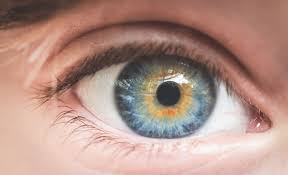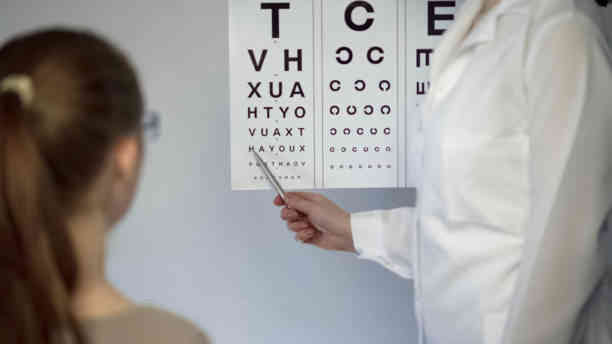Why Regular Eye Exams Matter: What You Need to Know
- Advertisement -
In today’s fast-paced world, many people neglect their eye health until problems arise. However, scheduling regular eye exams is crucial not just for maintaining good vision but also for detecting serious health issues early. In this article, we explore the importance of annual eye exams, key eye exam facts, and the broader importance of eye examination for your overall well-being.
The Importance of Annual Eye Exams
Annual eye exams are much more than a vision check. They serve as a window into your general health. The importance of annual eye exams cannot be overstated for the following reasons:
- Advertisement -
- Early Detection of Eye Diseases: Conditions like glaucoma, cataracts, and macular degeneration often develop silently without noticeable symptoms. Routine exams can detect these early before irreversible damage occurs.
- Monitoring Changes in Vision: Eyesight can change subtly over time. Regular exams help update prescriptions and ensure you maintain optimal vision.
- Identifying Systemic Health Problems: Eye doctors can detect signs of serious health issues, including diabetes, hypertension, and high cholesterol, during a standard eye exam.
- Preventing Eye Strain and Fatigue: With increased screen time, digital eye strain is becoming common. Eye exams help manage and prevent this growing issue.
- Children’s Visual Development: Early exams are vital for identifying vision problems that could affect a child’s learning and development.
Failing to recognize the importance of annual eye exams can result in preventable vision loss and delayed diagnosis of other health conditions.

- Advertisement -
What Happens During an Eye Exam?
Understanding the process of an eye examination can ease anxiety and encourage more people to prioritize it. Here’s what a typical comprehensive eye exam includes:
- Medical History Review: The optometrist asks about your general health, medications, and family history of eye diseases.
- Visual Acuity Test: This determines how clearly you can see from various distances.
- Refraction Assessment: Identifies whether you need prescription lenses and measures your level of farsightedness, nearsightedness, or astigmatism.
- Eye Muscle Test: Checks for problems with eye movement or coordination.
- Pupil Dilation: Expands the pupil to allow a more detailed examination of the retina and optic nerve.
- Glaucoma Screening: Measures intraocular pressure to detect signs of glaucoma.
- Retinal Examination: Looks for abnormalities in the back of the eye, which can indicate diseases.
- Advertisement -
Knowing these eye exam facts highlights why skipping your annual visit can put your vision—and health—at risk.
Recommended for you
Superfoods for Your Eyes: Nutrition Tips for Better Vision
Eye Exam Facts You Should Know
There are many misconceptions about eye health. Let’s clear the air with some important eye exam facts:
- Advertisement -
- Vision Screening is Not a Substitute for a Full Eye Exam: Screenings (like those done at schools) only check for basic vision problems. They miss more serious issues that a full exam would catch.
- Eye Exams are Necessary Even if You Have Perfect Vision: Many eye diseases show no symptoms until advanced stages.
- Children Need Eye Exams Early: Experts recommend the first exam at 6 months of age, again at 3 years, and before starting school.
- Adults Over 40 Need More Frequent Exams: Risk for diseases like glaucoma and macular degeneration increases with age.
- Contact Lens Wearers Require Specialized Exams: Improper lens fit can cause infections or damage the cornea.
- Diabetics Need Annual Eye Exams: Diabetic retinopathy is a leading cause of blindness, but early detection can prevent severe vision loss.
Being aware of these eye exam facts can motivate individuals and families to prioritize their eye health year after year.
The Importance of Eye Examination for Children
Children rely heavily on their vision for learning and development. Here’s why the importance of eye examination for kids is critical:
- Academic Success: Studies show that 80% of learning happens visually. Poor eyesight can lead to misdiagnosis of learning disabilities.
- Behavioral Issues: Undiagnosed vision problems can cause frustration, leading to behavioral problems in school.
- Sports and Social Development: Good vision is essential for sports performance and building social confidence.
- Early Intervention: Conditions like lazy eye (amblyopia) and crossed eyes (strabismus) are easier to treat when detected early.
Parents should never assume that children will complain if they have vision problems; regular eye exams are the only way to ensure healthy visual development.
The Role of Eye Exams in Detecting Other Health Issues
Another major aspect of the importance of annual eye exams is the ability to detect non-ocular health problems:
- Diabetes: Eye doctors can spot early signs of diabetic retinopathy long before symptoms appear.
- High Blood Pressure: Changes in the retinal blood vessels can indicate hypertension.
- Brain Tumors: Swelling of the optic nerve can sometimes signal a brain tumor.
- Autoimmune Disorders: Conditions like lupus and multiple sclerosis may show symptoms in the eyes first.
Regular eye exams could literally save your life, not just your sight.
Common Signs You Need an Eye Exam
Even if your last checkup was recent, be alert for warning signs that demand an immediate eye exam:
- Blurred or double vision
- Frequent headaches
- Eye pain or redness
- Trouble focusing on close or distant objects
- Flashes of light or floaters
- Difficulty seeing at night
- Sudden vision loss in one or both eyes
If you experience any of these symptoms, consult an eye care professional immediately.
How Often Should You Get an Eye Exam?
The frequency of exams varies by age and health status:
| Group | Frequency |
|---|---|
| Children (6 months – 6 years) | At 6 months, 3 years, before school |
| School-aged Children | Every 1–2 years |
| Adults (18–39) | Every 2 years, or annually if needed |
| Adults (40–64) | Every 1–2 years |
| Seniors (65+) | Annually |
| People with Diabetes or Eye Disorders | Annually |
Always follow your doctor’s personalized recommendations.
Tips for a Successful Eye Exam
- Bring a List of Symptoms: Jot down any vision changes or discomfort you’ve noticed.
- Know Your Medical History: Include any family history of eye disease.
- Carry Current Eyewear: Bring your glasses or contacts to check if your prescription needs updating.
- Prepare Questions: Don’t hesitate to ask about LASIK surgery, screen protection, or any vision concerns you have.
- Follow Post-Exam Instructions: Especially if your eyes are dilated, plan for someone to drive you home.
Preparation ensures you get the most benefit from your appointment.
Conclusion
The importance of annual eye exams cannot be overemphasized. Regular eye examinations help maintain clear vision, detect potentially life-threatening health conditions, and ensure the early treatment of eye diseases. Armed with accurate eye exam facts and a solid understanding of the importance of eye examination, you can take proactive steps toward preserving both your eyesight and your overall health.
Skipping eye exams is not just a risk to your vision—it’s a risk to your life. Make the smart choice: schedule your next comprehensive eye exam today.
- Advertisement -


